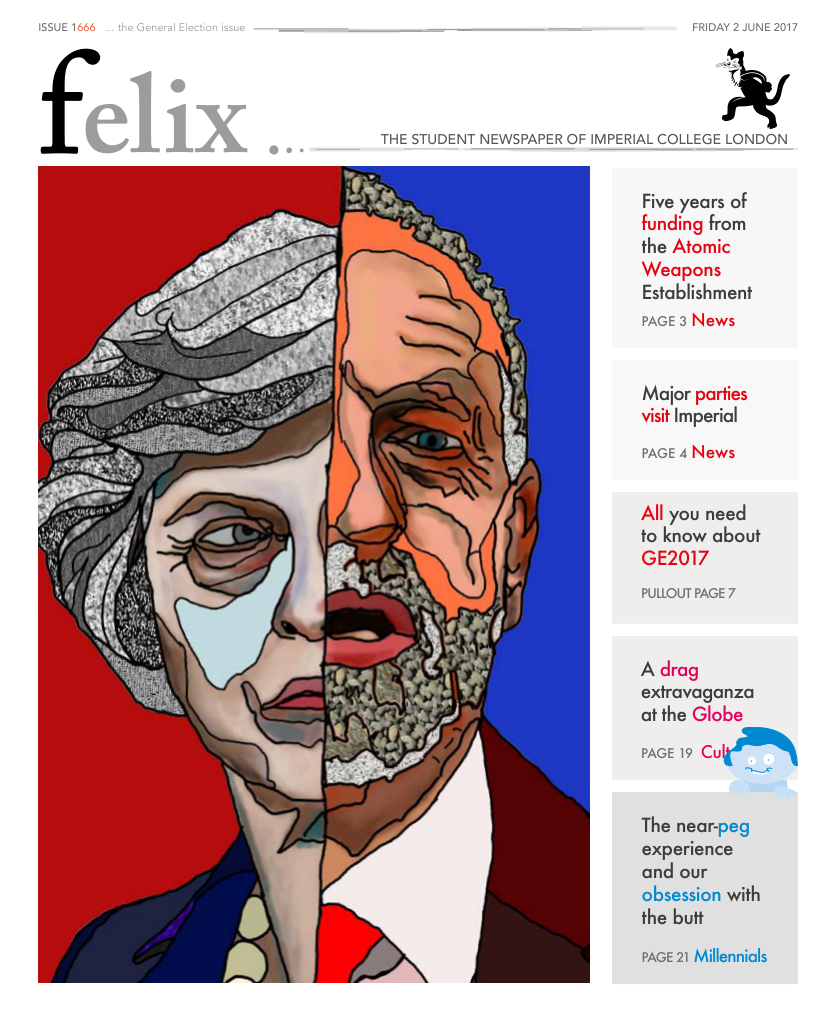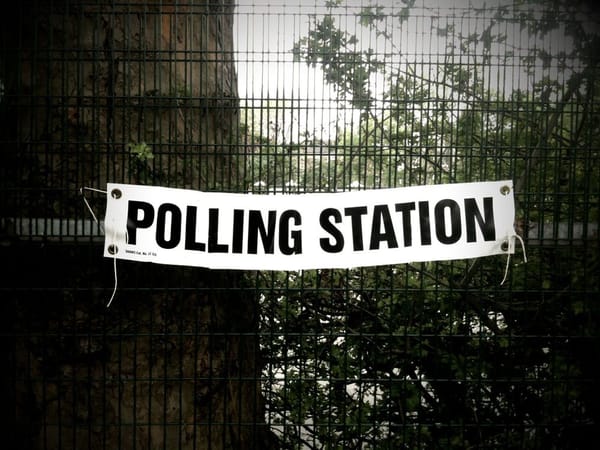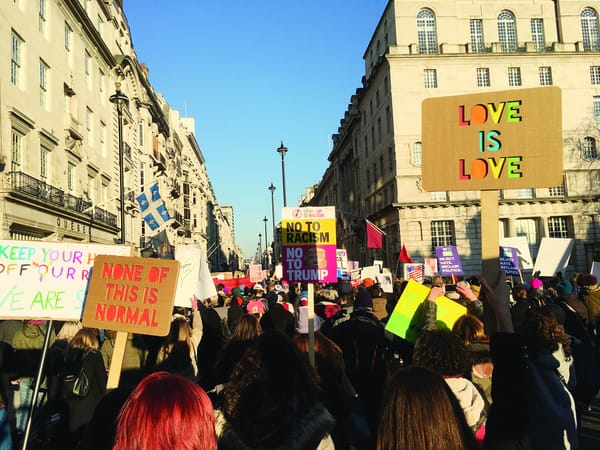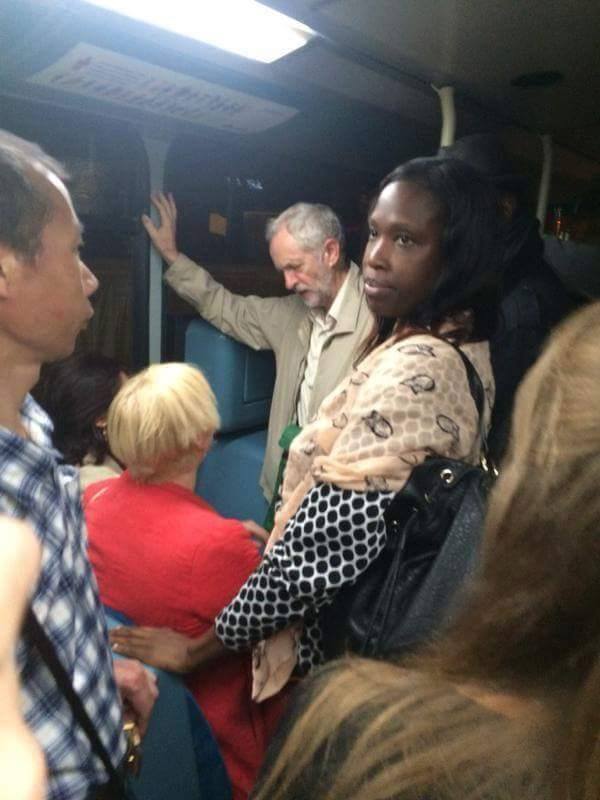Manifesto breakdowns
The policy headlines

This piece aims to break down the main party manifestos and summarise a few key policies. This is by no means a full and in-depth analysis of each party. Mainly because the manifestos are long and complex, and it’s exam season. [Insert tinfoil hat theory that the timing of the election coincides with the time when young voters are away from their constituencies/too busy to fully engage]
These should be brief guides, and the manifestos themselves should be consulted before you vote (or at least the impartial and bullet-pointed BBC synopses of them). Another good resource is uk.isidewith.com, a website which asks your opinion on policy points and, within a degree of error, gives you an idea of who best fits your views. Aside from all this, the Institute of Fiscal Studies (IFS) is an impartial body who have looked into the main party manifestos and given their verdict of the economics behind it all, well worth a look too. Also visit yourvotematters.co.uk to find your local candidates as well as theyworkforyou.com to see how the incumbent has performed.
Whatever you do, don’t let felix be your sole source of political information (or any other publication/party website for that matter), you need to be fully informed when you cast your vote (or spoil your ballot) on June 8th.
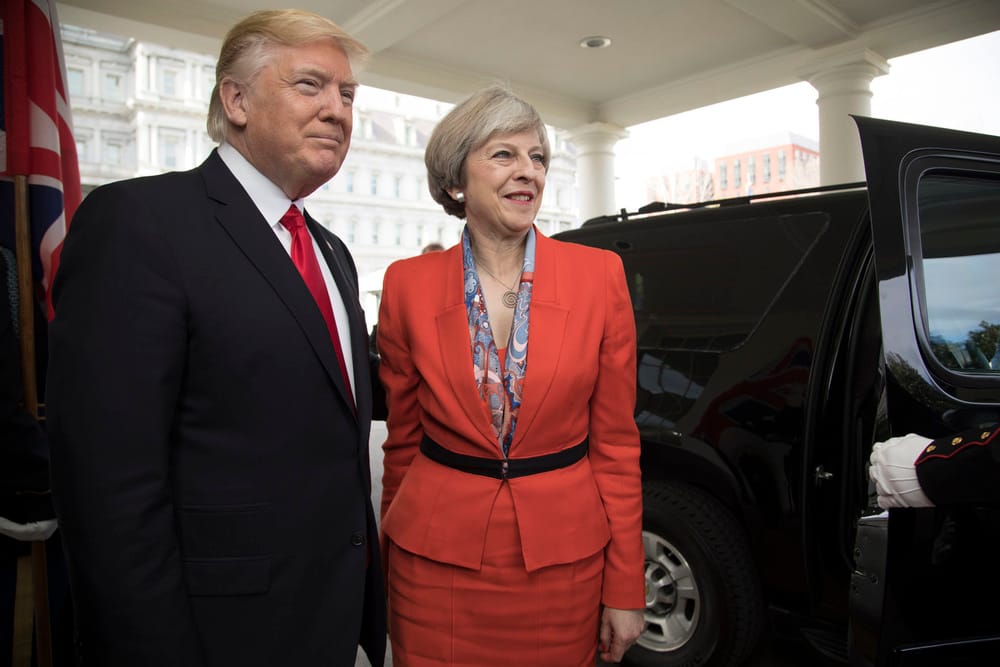
Conservatives | Theresa May
The Conservative party started this election campaign with the sole intent to claim a larger majority and strengthen their position when it came to negotiating the future of Britain after Brexit. When the snap election was called by Theresa May back in April it seemed a full-blown conclusion that a large Conservative majority was inevitable, but that lead in the polls (of around 24%) has begun to slide in recent weeks.
Just how confident was May of winning a majority? Well she announced her support for the return of fox hunting last month, a policy that 78% of the public disagreed with. Whatever your feelings on the matter, to back a policy that less than a fifth of the public agree with was a ballsy move. The issue of the moment, Brexit, is one which the Conservatives aim to facilitate as smoothly as possible, leading to a “strong and stable economy”. The manifesto sets out plans to leave the single market and the customs union with the EU, whilst seeking a “deep and special relationship” with it. It almost sounds romantic. Almost. With this exit from EU, the UK will be able to pursue trade deals more openly with the wider world. May believes that this is now the way forward, despite backing the Remain campaign.
The NHS is a non-Brexit topic that is discussed by all parties, with the Conservatives pledging £8bn extra funding. The Tories have chosen to tackle the rising costs of social care by introducing a plan which alters how much people pay towards their own care. These plans will raise the current threshold at which people start paying, from £23,250 to £100,000, but the exemptions that meant (usually) houses wouldn’t count as assets could be scrapped. These rules will also now apply if you get care in your home (for illnesses such as dementia, hence why it’s been nicknamed the ‘dementia tax’). This means more people could be forced to sell off their home to pay for their care, albeit not while they’re living. These care costs seemingly had no limit in the manifesto, until May U-turned and said that there would be a cap on lifetime care costs. No concrete figure has yet to be put on that limit though.
The economy also features heavily in the manifesto, with the ever recurring pledge to ‘balance the books’ (make sure government spending = government revenue) which will now not occur until 2025. Plans to raise personal tax allowances to £12,500 and cut corporation taxes to 17% will be maintained from the last general election. Basically ‘we promised to do this by 2020 and we’ll keep going towards that’. Increases in VAT have also been ruled out, fantastic news, as I can barely work out 20% of prices as it is, let alone some other decimal value.
If you’re hoping to see May discuss these policies directly with the other party leaders then you’ll be sadly disappointed, she chose to ‘meet voters’ directly up and down the country rather than debate with the other leaders on TV. Amber Rudd, current home secretary, did however take her place in the BBC debate on Wednesday.
Fun Fact: In the manifesto, ‘strong’ appears 86 times and ‘stable’ a mere 20 times.
Prediction: Around enough MPs to form a majority, could go either way though.
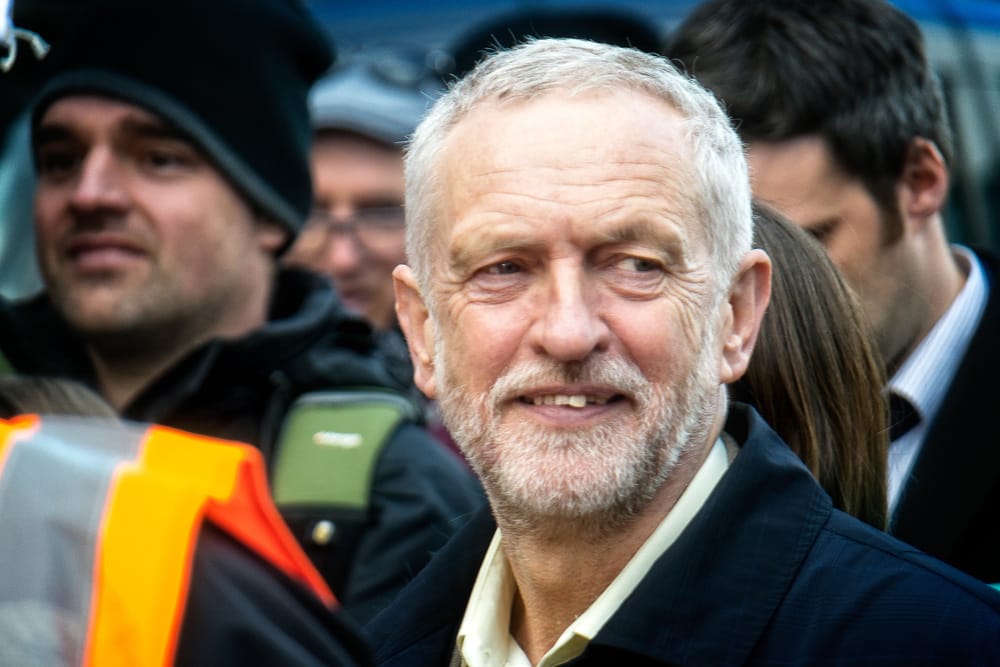
Labour | Jeremy Corbyn
At the start of the General Election campaign with 24 points between the two major parties in the polls, a massive Conservative landslide on the 8th of June looked all but inevitable. It was meant to be an election about leadership of the “strong and stable” kind, not one fought on policy. But the popularity of Labour’s manifesto and key promises has surprised many. They have offered a manifesto, which while large swathes of the press might label as extreme, is in tune with a large proportion of the population. The slogan “for the many, not the few” is at the core of many of the document’s proposals. The party have promised to increase income tax for the top 5% of earners, or those earning over £80,000, with new a new 45p rate as well as a 50p tax rate on all money earned over £123,000. An arguably more extreme measure is the increase of corporation tax from 19% to 26% – Labour say that this will raise up to £19.4 billion a year – but others warn that companies will move business away from the UK as a result (especially in an uncertain post-Brexit climate). The most transformative measures in the manifesto look at bringing back many private services into public ownership. Railways will be run by the government when franchises expire (at a cost of nothing to the taxpayer) and a fare cap will be introduced. The manifesto also includes the promise of at least one publicly-owned energy company in every region of the UK, a return to public control of the national grid, and a ban on fracking.
Britain’s unions will be very happy with Labour’s manifesto as it includes the creation of a Ministry of Labour to enforce workers rights as well as the repeal of the Trade Union Act. Unpaid internships and zero-hours contracts will be banned. And workers will finally be paid a Living Wage with the Minimum Wage rising to at least £10 by 2020. On Brexit, the manifesto outlines what the party hopes to achieve in talks with the EU. Single market and customs union benefits are to be retained as well as membership of many R&D groups (which could have a major impact on Imperial). All EU nationals living in Britain will have their existing rights guaranteed with the hope that the EU will provide the same for all 1.2 million UK citizens living in Europe.
But what about students? In 2015, Ed Miliband vowed to reduce tuition fees to £6,000 a year. This time Labour have gone further and will abolish tuition fees altogether (including those who start university this autumn) and reintroduce maintenance grants. Another welcome move is the exclusion of students from immigration numbers (which the Lib Dems promise too) and to ensure Britain remains part of the Erasmus student exchange scheme after it leaves the European Union.
Corbyn and Labour have also found an unlikely ally in the form of the UK Grime scene with #grime4corbyn being used by some of the UK’s biggest and best MCs to show their support. If nothing else, Jeremy’s got a new career to fall back on if it goes awry on June 8th. A Jme/JC collaboration has got Mercury Music prize written all over it.
Fun Fact: Largest manifesto, I know because Diane Abbott told me.
Prediction: Second largest party, possibly enough to form a Lab/Lib/everyone else coalition.
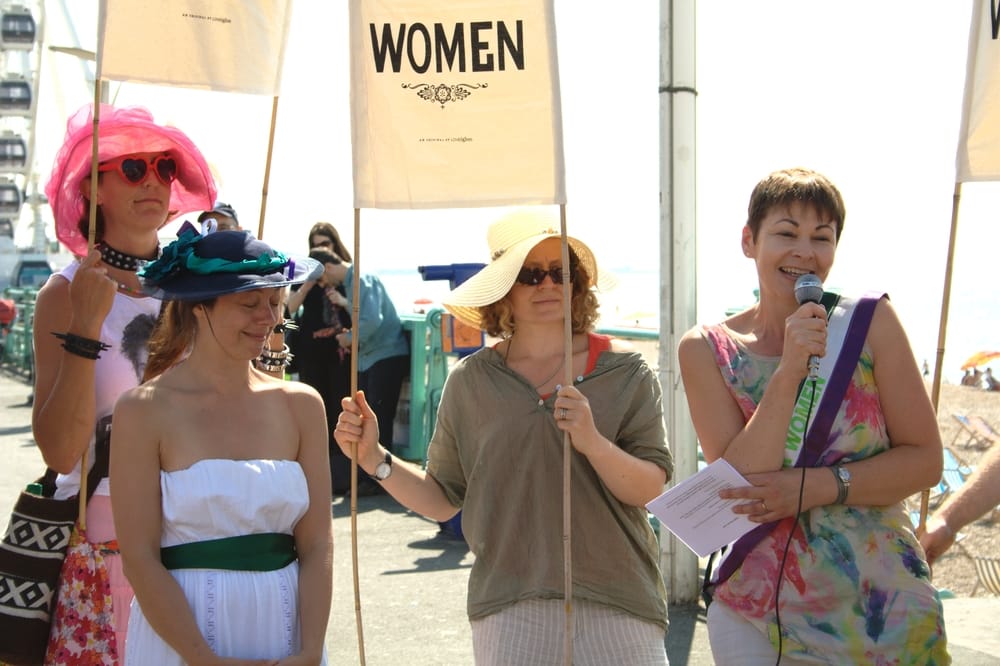
Greens | Caroline Lucas & Jonathan Bartley
The Green Party are the party that are pushing the most towards a utopian society with their manifesto, championing animal rights, environmentalism, and a united Europe (in the form of the EU).
The Greens, similar to the Lib Dems, want a second referendum on the terms of the Brexit deal with the EU and another final choice of staying in the union (we might actually have to leave and rejoin, it’s all a bit unclear as we’re the first).
One big shakeup would be enacting a four-day working week, a policy which the manifesto tackles in half a bullet point. All I want to know is what day they’re actually going to turn into a weekend, Fridays currently feel more like weekends but everyone loves a good Bank Holiday Monday. It’s a toughie. Other changes to the working world include the banning of zero-hours contracts and steps towards a universal basic income as well as a minimum wage of £10 by 2020.
Students may be glad to hear of their proposed tuition fees scrapping, and fully funded student grants, bold promises but ones which you shouldn’t bank on. Students looking for work in the oil/gas/nuclear energy sectors will be less happy though, as the Greens aim to replace these entirely with renewables. The environment is at the heart of the agenda too, with a keystone of it all being an ‘Environmental Protection Act’ to restore and safeguard the environment. Although this is a bit vague in the manifesto, there are plenty of policies which detail things from cancelling airport expansions to increasing protections on environmental zones (Green Belts, National Parks etc.).
In complete opposition to UKIP (as most of their policies are) is the increase of the overseas aid budget from 0.7% to 1% of the GDP.
All in all the Greens face an uphill struggle to be a viable force in Westminster as the current voting system doesn’t work in their favour at all. They only gained one MP in 2015 (one of the two co-leaders of the Party, Caroline Lucas) and likely won’t gain a whole lot more.
Criticism has been drawn over the lack of concrete figures in the manifesto but this may be due to the brief planning period that the snap election has caused. Imagine you only had three hours to complete your lab report, you’d be a bit hazy on all the figures too. And remember, as their arch nemesis UKIP showed, you don’t actually need MPs to start a revolution, you just need public support.
Fun Fact: Shortest of the manifestos (26 pages). Very environmentally friendly.
Prediction: Likely just the one MP, the flaw of FPTP.

UKIP | Paul Nuttall
UKIP, the United Kingdom Independence Party, to give it its full name, has for the last decade or so been essentially Nigel Farage and friends. He was the leader that led the party to the fulfilment of their primary goal, for the UK to leave the European Union, before (eventually) handing over the reins of the party to Paul Nuttall. The manifesto this time around focusses on making sure the government, whoever that may be, is pressured into a full and swift cutting of ties with Brussels.
This comes in the form of leaving as soon as possible (2019), paying none of the ‘divorce bill’ from the EU (for our “share of the financing of all the obligations undertaken while it was a member”), and quitting pretty much all of the EU initiatives and unions (the jurisdiction of the European Court of Justice, the EU single market, and customs union). Oh, they also want “full maritime sovereignty” too. Rule Britannia, Britannia rules the waves, and all that.
Migration, or lack thereof, is also a pillar of UKIP policy and they pledge to cut net migration to zero i.e. one in, one out. This is in tandem with unskilled and low-skilled migrant labour being banned for five years, with skilled workers and students needing visas to work/study in the UK. There is also a pledge to restore university maintenance grants but also one to end student loans for EU nationals after Brexit.
Foreign aid is also to be slashed and funnelled into the struggling NHS, contributing to an extra £11bn for NHS and social care combined. Headlines have also been drawn to their policy surrounding the ban on wearing a burqa or niqab in public. As an addendum to their views surrounding the barrier to communication and the risk to security UKIP feel the garments pose, they are also concerned at the lack of Vitamin D that wearers may be getting from decreased exposure to sunlight. The burqa and niqab masks people’s faces, much like the Vitamin D excuse masks UKIP’s true intentions. No news yet on whether their sympathies also extend to those of us stuck in the library revising all day.
And just when you think we’d had enough of them, UKIP also pledge to hold a public referendum on something (literally anything) every two years based on public opinion.
Fun Fact: The manifesto namedrops U2 frontman, Bono.
Prediction: Their vote share will tumble and they will likely have no MPs. Poor Paul.

SNP | Nicola Sturgeon
The Scottish National Party (SNP) rose to prominence in 2015 after they swept 56 out of the 59 seats in Scotland, solidifying themselves as the voice of Scotland in Westminster. Chunks of SNP policy, as is the same with Plaid Cymru, focusses on topics which are ‘devolved’ and aren’t voted on in Westminster. Despite that, the manifesto does actually lay out how the SNP would vote in some cases (essentially they’d vote as they would if the matter involved Scotland).
The keystone of SNP policy has been the fight for Scottish Independence, a case which they fought for in the independence referendum (#indyref) back in 2014. After Brexit they now want a second referendum (#indyref2). Sturgeon and the SNP were originally planning to have this referendum before Spring 2019 but it’s now been pushed to sometime after the final Brexit negotiations go through. With regards to Brexit, the SNP want to protect Scotland’s place in the EU single market as well as actually getting the Scottish Government (themselves) a place at the Brexit negotiations.
Similar policies to Labour pop up here and there in the manifesto, including a £10 minimum wage, no increase in National Insurance/VAT, and triple lock on pensions. Another point of note is that it’s the deputy leader, Angus Robertson, who would represent the party in Westminster. This is because Sturgeon is the Scottish First Minister and that job comes with its own Georgian townhouse. I’d probably send my deputy to Westminster too.
Fun Fact: Scotland or Scottish is mentioned 515 times in the manifesto.
Predicted Seats: Scotland’s largest party by far, they’ll probably lose a seat or two.
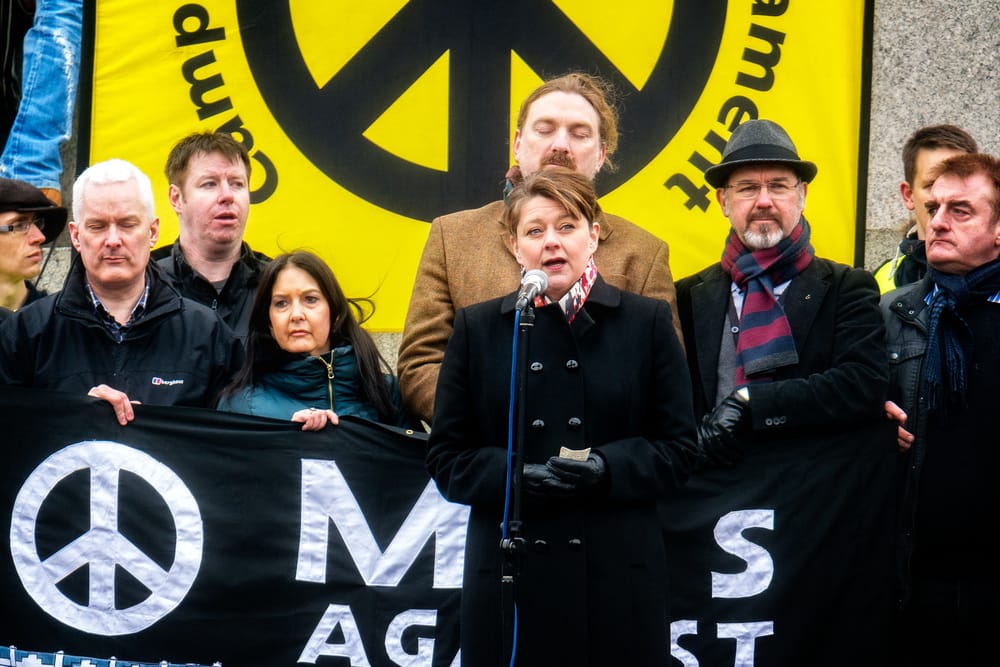
Plaid Cymru | Leanne Wood
Again, due to devolution, Plaid isn’t really up against the bulk of the main party policies. The devolved Party manifestos are so removed from the ‘Westminster’ policies that the Llafur Cymru (Welsh Labour) manifesto doesn’t once mention Jeremy Corbyn. Some parts of Welsh life are inevitably governed by Westminster but the Wales-specific policies can make all the difference when casting your vote.
Wales is set to be one of the areas hardest hit by the loss of EU money, and one of Plaid’s key policies is ensuring that Westminster promise to replace every penny. Plaid are also promising to guarantee rights for all Europeans currently in Wales, and aim to secure a strong Brexit deal for Welsh agriculture and industry. £7.5 bn would also go towards infrastructure investments in hospitals, railways, schools, roads, and housing, as well as vast investments in health, social care, and policing. They would introduce an independently verified living wage and living pension, and invest significantly in education at all stages, including increasing the availability of Welsh language education.
The manifesto promises a new Welsh legal jurisdiction and human rights charter. They pledge investments in renewables and a new Climate Change Act, and promise to fight to scrap Trident and oppose military action without UN and parliamentary approval. Their key pledge is to continue to fight for an independent Wales, elevated from “a minor English region” as it currently stands. They promise further powers for the Welsh Assembly, including having an independent commission examine the distribution of funding across the UK to ensure Wales gets the best deal. They would have the Welsh Assembly take a more prominent role in national decisions that have implications within Wales.
Fun Fact: Dydw i ddim yn siarad Cymraeg.
Prediction: Around the same as last time, three, maybe four MPs.



